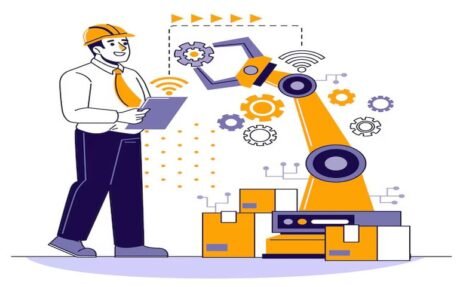Course Features
Price
Study Method
Online | Self-paced
Course Format
Reading Material - PDF, article
Duration
4 hours, 5 minutes
Qualification
No formal qualification
Certificate
At completion
Additional info
Coming soon
- Share
Overview
Ceramic engineering is a rapidly evolving field that plays a critical role in industries such as aerospace, biomedical, electronics, and construction. The Advanced Topics in Ceramic Engineering Level 3 Advanced Diploma is designed to provide learners with a thorough understanding of ceramic materials, their unique properties, and the latest advancements in the industry.
The course begins with an introduction to ceramic engineering, where students will explore the classification and fundamental properties of ceramic materials, including mechanical strength, thermal resistance, and electrical conductivity. This foundational knowledge sets the stage for understanding how ceramics are engineered for various industrial applications.
The ceramic manufacturing process is a key focus of the program, covering raw material selection, preparation, shaping techniques, and advanced firing and sintering processes. Students will gain insights into how ceramics are formed, treated, and enhanced for specific applications, from traditional pottery to cutting-edge engineering materials.
A major part of this course is dedicated to advanced ceramic materials and applications, including engineering ceramics, smart ceramics, and nanoceramics. These advanced materials have revolutionized industries such as electronics, medicine, and defense, providing lightweight, durable, and high-performance solutions. Students will explore how innovations in ceramic engineering are shaping the future of technology.
Quality control and failure analysis are essential in ceramic manufacturing to ensure product reliability and performance. Learners will study mechanical testing methods, quality assurance techniques, and fracture mechanics to understand how ceramic materials respond to stress and environmental conditions.
With a growing focus on sustainability, the course covers environmental impacts of ceramic manufacturing, recycling practices, and sustainable innovations in the field. Students will examine how modern ceramic engineering is adopting eco-friendly practices to reduce waste and improve energy efficiency.
The program concludes with practical industry applications, exploring real-world case studies, industry regulations, and career pathways in ceramic engineering. Students will gain valuable knowledge on industry standards, compliance measures, and opportunities for professional growth in sectors such as advanced manufacturing, material science, and research and development.
Who is this course for?
Ceramic engineering is a rapidly evolving field that plays a critical role in industries such as aerospace, biomedical, electronics, and construction. The Advanced Topics in Ceramic Engineering Level 3 Advanced Diploma is designed to provide learners with a thorough understanding of ceramic materials, their unique properties, and the latest advancements in the industry.
The course begins with an introduction to ceramic engineering, where students will explore the classification and fundamental properties of ceramic materials, including mechanical strength, thermal resistance, and electrical conductivity. This foundational knowledge sets the stage for understanding how ceramics are engineered for various industrial applications.
The ceramic manufacturing process is a key focus of the program, covering raw material selection, preparation, shaping techniques, and advanced firing and sintering processes. Students will gain insights into how ceramics are formed, treated, and enhanced for specific applications, from traditional pottery to cutting-edge engineering materials.
A major part of this course is dedicated to advanced ceramic materials and applications, including engineering ceramics, smart ceramics, and nanoceramics. These advanced materials have revolutionized industries such as electronics, medicine, and defense, providing lightweight, durable, and high-performance solutions. Students will explore how innovations in ceramic engineering are shaping the future of technology.
Quality control and failure analysis are essential in ceramic manufacturing to ensure product reliability and performance. Learners will study mechanical testing methods, quality assurance techniques, and fracture mechanics to understand how ceramic materials respond to stress and environmental conditions.
With a growing focus on sustainability, the course covers environmental impacts of ceramic manufacturing, recycling practices, and sustainable innovations in the field. Students will examine how modern ceramic engineering is adopting eco-friendly practices to reduce waste and improve energy efficiency.
The program concludes with practical industry applications, exploring real-world case studies, industry regulations, and career pathways in ceramic engineering. Students will gain valuable knowledge on industry standards, compliance measures, and opportunities for professional growth in sectors such as advanced manufacturing, material science, and research and development.
Requirements
Ceramic engineering is a rapidly evolving field that plays a critical role in industries such as aerospace, biomedical, electronics, and construction. The Advanced Topics in Ceramic Engineering Level 3 Advanced Diploma is designed to provide learners with a thorough understanding of ceramic materials, their unique properties, and the latest advancements in the industry.
The course begins with an introduction to ceramic engineering, where students will explore the classification and fundamental properties of ceramic materials, including mechanical strength, thermal resistance, and electrical conductivity. This foundational knowledge sets the stage for understanding how ceramics are engineered for various industrial applications.
The ceramic manufacturing process is a key focus of the program, covering raw material selection, preparation, shaping techniques, and advanced firing and sintering processes. Students will gain insights into how ceramics are formed, treated, and enhanced for specific applications, from traditional pottery to cutting-edge engineering materials.
A major part of this course is dedicated to advanced ceramic materials and applications, including engineering ceramics, smart ceramics, and nanoceramics. These advanced materials have revolutionized industries such as electronics, medicine, and defense, providing lightweight, durable, and high-performance solutions. Students will explore how innovations in ceramic engineering are shaping the future of technology.
Quality control and failure analysis are essential in ceramic manufacturing to ensure product reliability and performance. Learners will study mechanical testing methods, quality assurance techniques, and fracture mechanics to understand how ceramic materials respond to stress and environmental conditions.
With a growing focus on sustainability, the course covers environmental impacts of ceramic manufacturing, recycling practices, and sustainable innovations in the field. Students will examine how modern ceramic engineering is adopting eco-friendly practices to reduce waste and improve energy efficiency.
The program concludes with practical industry applications, exploring real-world case studies, industry regulations, and career pathways in ceramic engineering. Students will gain valuable knowledge on industry standards, compliance measures, and opportunities for professional growth in sectors such as advanced manufacturing, material science, and research and development.
Career path
Ceramic engineering is a rapidly evolving field that plays a critical role in industries such as aerospace, biomedical, electronics, and construction. The Advanced Topics in Ceramic Engineering Level 3 Advanced Diploma is designed to provide learners with a thorough understanding of ceramic materials, their unique properties, and the latest advancements in the industry.
The course begins with an introduction to ceramic engineering, where students will explore the classification and fundamental properties of ceramic materials, including mechanical strength, thermal resistance, and electrical conductivity. This foundational knowledge sets the stage for understanding how ceramics are engineered for various industrial applications.
The ceramic manufacturing process is a key focus of the program, covering raw material selection, preparation, shaping techniques, and advanced firing and sintering processes. Students will gain insights into how ceramics are formed, treated, and enhanced for specific applications, from traditional pottery to cutting-edge engineering materials.
A major part of this course is dedicated to advanced ceramic materials and applications, including engineering ceramics, smart ceramics, and nanoceramics. These advanced materials have revolutionized industries such as electronics, medicine, and defense, providing lightweight, durable, and high-performance solutions. Students will explore how innovations in ceramic engineering are shaping the future of technology.
Quality control and failure analysis are essential in ceramic manufacturing to ensure product reliability and performance. Learners will study mechanical testing methods, quality assurance techniques, and fracture mechanics to understand how ceramic materials respond to stress and environmental conditions.
With a growing focus on sustainability, the course covers environmental impacts of ceramic manufacturing, recycling practices, and sustainable innovations in the field. Students will examine how modern ceramic engineering is adopting eco-friendly practices to reduce waste and improve energy efficiency.
The program concludes with practical industry applications, exploring real-world case studies, industry regulations, and career pathways in ceramic engineering. Students will gain valuable knowledge on industry standards, compliance measures, and opportunities for professional growth in sectors such as advanced manufacturing, material science, and research and development.
-
- Overview of Ceramic Engineering 00:10:00
- Classification of Ceramic Materials 00:10:00
- Properties of Ceramics 00:10:00
-
- Raw Materials and Material Preparation 00:10:00
- Shaping Techniques in Ceramic Manufacturing 00:10:00
- Firing and Sintering Processes 00:10:00
- Engineering Ceramics and Their Uses 00:10:00
- Smart Ceramics and Functional Materials 00:10:00
- Nano-ceramics and Innovations 00:10:00
- Environmental Impact of Ceramic Manufacturing 00:10:00
- Recycling and Reusing Ceramic Materials 00:10:00
- Future Trends in Sustainable Ceramics 00:10:00
- Exam of Advanced Topics in Ceramic Engineering Level 3 Advanced Diploma 00:50:00

No Reviews found for this course.
Is this certificate recognized?
Yes, our premium certificate and transcript are widely recognized and accepted by embassies worldwide, particularly by the UK embassy. This adds credibility to your qualification and enhances its value for professional and academic purposes.
I am a beginner. Is this course suitable for me?
Yes, this course is designed for learners of all levels, including beginners. The content is structured to provide step-by-step guidance, ensuring that even those with no prior experience can follow along and gain valuable knowledge.
I am a professional. Is this course suitable for me?
Yes, professionals will also benefit from this course. It covers advanced concepts, practical applications, and industry insights that can help enhance existing skills and knowledge. Whether you are looking to refine your expertise or expand your qualifications, this course provides valuable learning.
Does this course have an expiry date?
No, you have lifetime access to the course. Once enrolled, you can revisit the materials at any time as long as the course remains available. Additionally, we regularly update our content to ensure it stays relevant and up to date.
How do I claim my free certificate?
I trust you’re in good health. Your free certificate can be located in the Achievement section. The option to purchase a CPD certificate is available but entirely optional, and you may choose to skip it. Please be aware that it’s crucial to click the “Complete” button to ensure the certificate is generated, as this process is entirely automated.
Does this course have assessments and assignments?
Yes, the course includes both assessments and assignments. Your final marks will be determined by a combination of 20% from assignments and 80% from assessments. These evaluations are designed to test your understanding and ensure you have grasped the key concepts effectively.
Is this course accredited?
We are a recognized course provider with CPD, UKRLP, and AOHT membership. The logos of these accreditation bodies will be featured on your premium certificate and transcript, ensuring credibility and professional recognition.
Will I receive a certificate upon completion?
Yes, you will receive a free digital certificate automatically once you complete the course. If you would like a premium CPD-accredited certificate, either in digital or physical format, you can upgrade for a small fee.
Course Features
Price
Study Method
Online | Self-paced
Course Format
Reading Material - PDF, article
Duration
4 hours, 5 minutes
Qualification
No formal qualification
Certificate
At completion
Additional info
Coming soon
- Share
Business Administration Level 3 Advanced Diploma
Course Line237£490.00Original price was: £490.00.£14.99Current price is: £14.99.Vibration Control Engineering Level 3 Advanced Diploma
Course Line240£490.00Original price was: £490.00.£14.99Current price is: £14.99.Supermarket Assistant Level 3 Advanced Diploma
Course Line239£490.00Original price was: £490.00.£14.99Current price is: £14.99.
Related Courses
Mastering Statics: Principles and Applications in Engineering Mechanics
£490.00Original price was: £490.00.£14.99Current price is: £14.99. 237
237Mining Engineering Level 3 Advanced Diploma
£490.00Original price was: £490.00.£14.99Current price is: £14.99. 241
241Data-Driven Engineering Level 3 Advanced Diploma
£490.00Original price was: £490.00.£14.99Current price is: £14.99. 237
237
Related Courses
Mastering Statics: Principles and Applications in Engineering Mechanics
£490.00Original price was: £490.00.£14.99Current price is: £14.99. 237
237Mining Engineering Level 3 Advanced Diploma
£490.00Original price was: £490.00.£14.99Current price is: £14.99. 241
241Data-Driven Engineering Level 3 Advanced Diploma
£490.00Original price was: £490.00.£14.99Current price is: £14.99. 237
237







